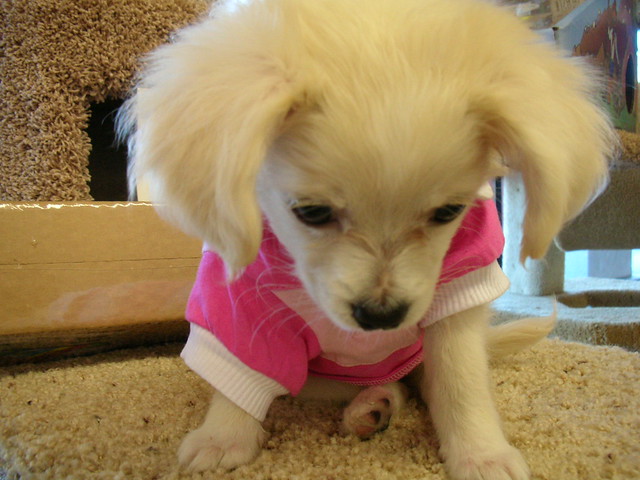Today we’re looking at words for prisions and related things in Celtic languages.
| Old Irish (Goídelc) | carcar [ˈkarkar] = prison, captivity |
|---|---|
| Middle Irish (Gaoidhealg) | carcar = prison, captivity, bondage, strong-room |
| Irish (Gaeilge) | carcair [ˈkaɾˠkəɾʲ] = prison, place of confinement; stall, pen |
| Scottish Gaelic (Gàidhlig) | carcair [karxgɛrʲ] = prison, coffer, sink, sewer, hermit’s cell |
| Manx (Gaelg) | carchyr = imprisonment, jail carchyragh = gaolbird, prisoner |
| Proto-Brythonic | *karxar = prison, jail |
| Middle Welsh (Kymraec) | karchar, carchar, carcar = prison, gaol karcharaur, carcharawr = prisoner |
| Welsh (Cymraeg) | carchar [ˈkarχar] = prison, gaol, pen, stable, bond, fetter, band, chain, hobble, restriction, obstruction, impediment, constipation carcharbwll = dungeon, prison-pit carchardy = prison house, gaol carchardig = imprisoned, incarcerated, confined carchardigaeth = imprisonment, confinement carchargell = prison cell carchariad = imprisonment, confinement carchariad, carcharor = prisoner carcharu = to imprison, impound, confine, shackle, fetter, hobble, restrict, obstruct |
| Middle Cornish (Cernewec) | carhar = jail, prison |
| Middle Breton (Brezonec) | carchar, charc’har, karc’har = prison, jail karc’hariañ = to imprison karc’hariadigezh = imprisonment |
| Breton (Brezhoneg) | karc’har = dungeon karc’harel = prison karc’hariañ = to imprison karc’hariadigezh = imprisonment |
Etymology: from Latin carcer (prison, jail, jailbird, beginning, starting gate), from Proto-Italic *karkos (enclosure, barrier), from PIE *kr̥-kr̥- (circular), a reduplication of *(s)ker- (to turn, bend) [source].
Words from the same Latin root include incarcerate in English, carcere (jail, prison, imprisonment) in Italian, cárcere (jail, prison) in Portuguese, kerker (dungeon) in Dutch, and карцер (lockup, punishment cell, sweatbox) in Russian [source].
English words from the same PIE roots include circle, circus, corona, crisp, cross, crown and ring [source].
| Middle Irish (Gaoidhealg) | prísún, brísún = prison prísúntacht = imprisonment |
|---|---|
| Irish (Gaeilge) | príosún [ˈpʲɾʲiːsˠuːn̪ˠ] = prison, imprisonment príosúnach = prisoner príosúnacht = imprisonment príosúnaigh = to imprison príosúnú = imprisonment |
| Scottish Gaelic (Gàidhlig) | prìosan [prʲiːsən] = prison, jail prìosanach = prisoner prìosanachadh = imprisoning, incarcerating |
| Manx (Gaelg) | pryssoon = brig, gaol, glasshouse, jail, lock-up, penitentiary, prison, clink pryssoonagh = captive, detainee, internee, prisoner pryssoonaght = detention, imprisonment, incarceration pryssooneyder = gaoler imprisoner |
| Cornish (Kernewek) | prison = gaol, jail, prison prisonya = to imprison, incarcerate prisonyans = imprisonment |
| Middle Breton (Brezonec) | prizon = prison, jail prizoniad = prisoner, detained prizoniadur, prizonierezh = imprisonment prizon(i)añ = to imprison prizon(i)er = prisoner |
| Breton (Brezhoneg) | prizon = prison, jail prizoniad = prisoner, detained prizoniañ = to imprison |
Etymology: from the Middle English prisoun (prison, jail, dungeon), from the Anglo-Norman pris(o)un (prison, jail, dungeon), from the Old French prison (prison) from the Latin prehensiō (seizing, apprehending, arresting, capturing), from prehendō (to seize). The Breton probably comes directly from Old French [source].
Sources: Wiktionary, Am Faclair Beag, Online Manx Dictionary, Teanglann.ie, eDIL – Electronic Dictionary of the Irish Language, In Dúil Bélrai English – Old Irish glossary, Geiriadur Prifysgol Cymru, Gerlyver Kernewek, Dictionaire Favereau, TermOfis, English – ProtoCeltic WordList (PDF), Etymological Dictionary Of Proto Celtic











